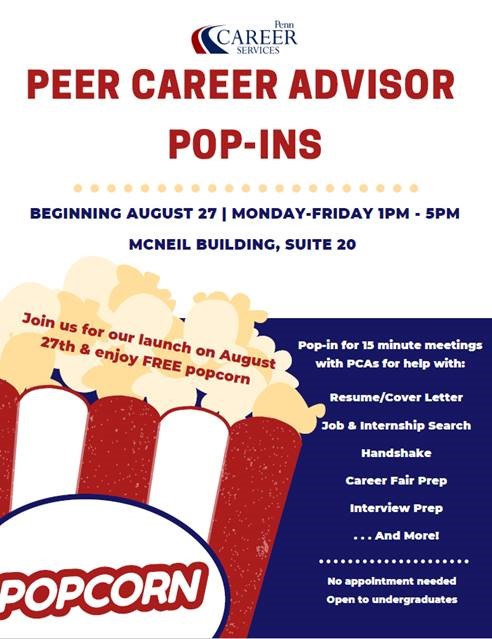Jingy Yen, Associate Director
All summer, we have been prepping and planning for when students return in the fall. This semester, we are launching the new Peer Career Advising program which will provide undergraduate students with more advising resources through quick, 15 minute Pop-ins.
What are Pop-ins?
Pop-ins are run by our Peer Career Advisors (PCAs). PCAs can answer all your career related questions in 15 minute meetings. No appointment needed, just pop-in!
Who can use Pop-ins?
We serve all current undergraduate students at Penn.
When are Pop-ins?
Monday-Friday, 1:00PM-5:00PM.
What can I talk about in a Pop-in?
PCAs can help with resumes, cover letters, interviewing skills, Handshake tips, job/internship search and more. They have been extensively trained on these topics all summer. This is a great resource for those quick questions such as “How do I write about my summer experience on my resume?” and “What is this weird part of Handshake?”
What if I want to see an advisor?
That will always be an option! You can still make an appointment via Handshake or stop by advisor walk-in hours. Advisors can help with bigger questions like “I have no idea what I want to do with my life” or “Help! I have an exploding offer.”
We are excited about the launch of this new program, and we hope to see you popping-in soon!





